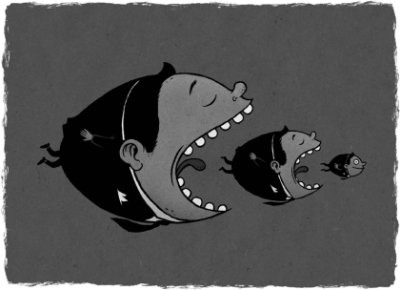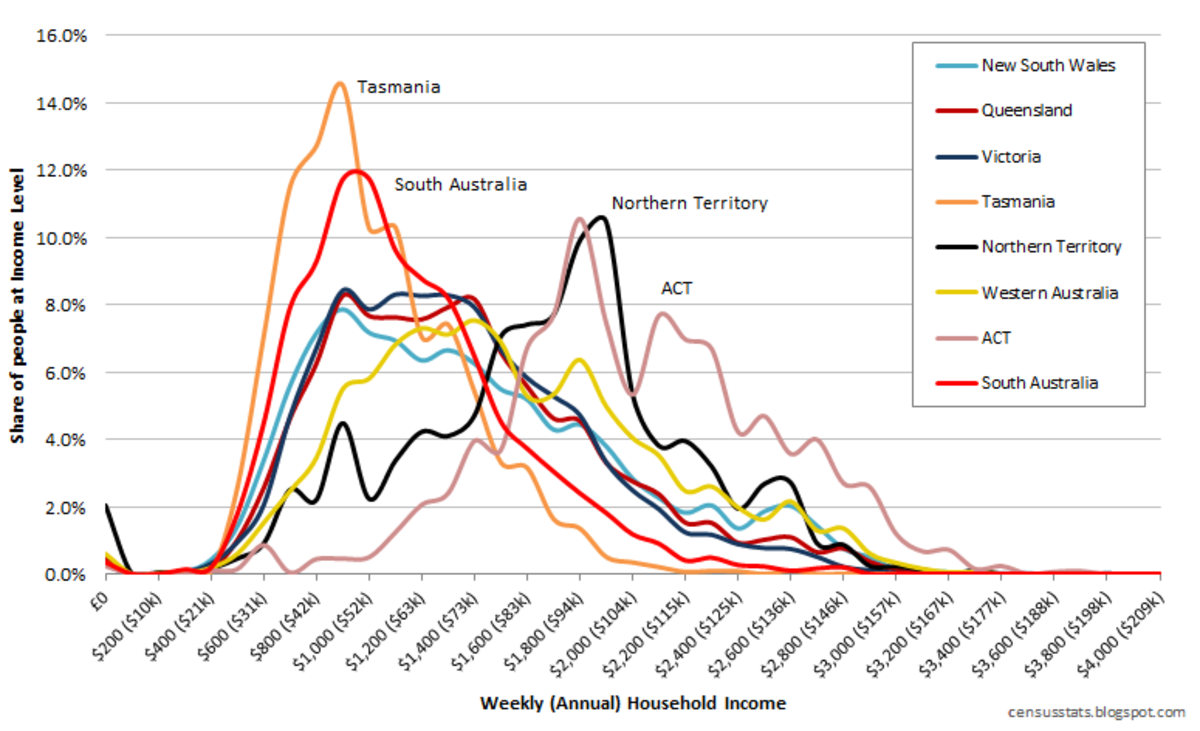Tragedy of the Commons
Biggest Fish Wins?

Freedom of Enterprise
The theory of the commons is only practical during periods of social unrest; ie: wars etc; The juxtaposition of this theory is that on the one hand, it cannot work without chaos; at the same time; if it does work and the inevitability of social stability does occur, this theory then causes chaos.
The chaos of this theory is brought about by self-centeredness in that all parties consider how the variables that equate this scenario affect them personally. They negate to consider the alternate effects and the chain reaction that affects all parties in a destructive manner.
Much like how the body is all connected, and a problem in one area can radiate to another area and cause pain there; so are we all connected in our humanness, and our spirits, and likewise, our thoughts and actions affect others in ways we cannot conceive.
This self-absorbed consideration is viewed as freedom, but this freedom inevitably enslaves all, because it denies the existence of other individuals in favor of the rights of one. The catalyst of this theory is freedom of enterprise or capitalism.
Are You A Writer?
If you are interested in making money online while writing? Hubpages is a great community to write in!
What is Barbaric?
Do you think killing animals is barbaric?
Barbaric?
In addition, temperance cannot be legislated because the original ethical laws are not followed and obeyed. Due to the unrecognized but functioning principle in which our laws are based and altered; namely that the morality of an act is a function of the state of the system at the time it is performed; this paves the way for acts that would be considered barbaric by one culture 100 years ago (for instance, killing a bison and utilizing only the tongue while discarding the rest), would be completely ignored by another culture or people.
Again, the dismissal of the views of another culture that respected the land and the creatures on it, and was careful not to be wasteful in their use of such; was disregarded via the aforementioned self-centeredness of another group, who misused the original ethical laws for the purpose of self-fulfillment via “freedom of enterprise,” which again, denies the existence via the rights of other peoples and cultures, and includes conquering and/or enslaving them to feed that end goal.
In the midst of actions such as these, the capitalists who take this immoral path of destruction of another people and culture, do so under the self-justification that it doesn't matter because that other culture or people are nothing but uncivilized barbarians. But actions such as these cannot be considered to be anything else but acts of the truly uncultured and uncivilized. To call such people a barbarian is actually an insult to barbarians.

Selfishness Begets Waste
Only now, hundreds of years later, can any of these self-centered individuals begin to comprehend a fraction of the resources that have been wasted due to the selfishness and self-centeredness of their counterparts. Even the principles of “village” living that has prevailed among various “uncivilized” cultures, never caused the chaos of the commons, nor that of free enterprise due to the unified goals of the group. Yet these ideas were dismissed by the individuals who judged themselves superior.
Changing The System
Do you believe that the capitalistic system should be changed?
Ethical Code
The codifiers of the past knew that morality is system sensitive only where selfishness and self-absorption exists, which is why the ethical code they devised spoke against the focus of individuality because its goal of unity required people to reach out and help their fellow man. In such an idealist world, the theory of the commons could not exist because there would be no “me” variable being considered.
Even Paul Goodman identified it in his statement about guilt-it is about the self. And conscience, as illustrated by the writer, refers back to ethical responsibility, in which case, would require ethical standards or laws that govern the lack of consciousness; ie: selfishness that is so prevalent.
The Eyes Of Society
The infringement on the freedom of bank robbers to consider a bank to be a “commons” of free enterprise, would be an infringement that would be an acceptable prohibition. This would be acceptable per social arrangements because the destructive end result is readily seen by the “eyes” of society.
But when conscience and responsibility need to be harnessed and controlled, social arrangements are insufficient because history illustrates clearly, that it takes society hundreds of years to “catch on” to the harmful affects of a lack of moral prohibitions. In an ethically based code of standards or laws, carefully biased options are given. Choices are allowed, but the persuasion of coercion used are structured in the penalties of choosing self-oriented behaviors and ignoring the ethical standard.





